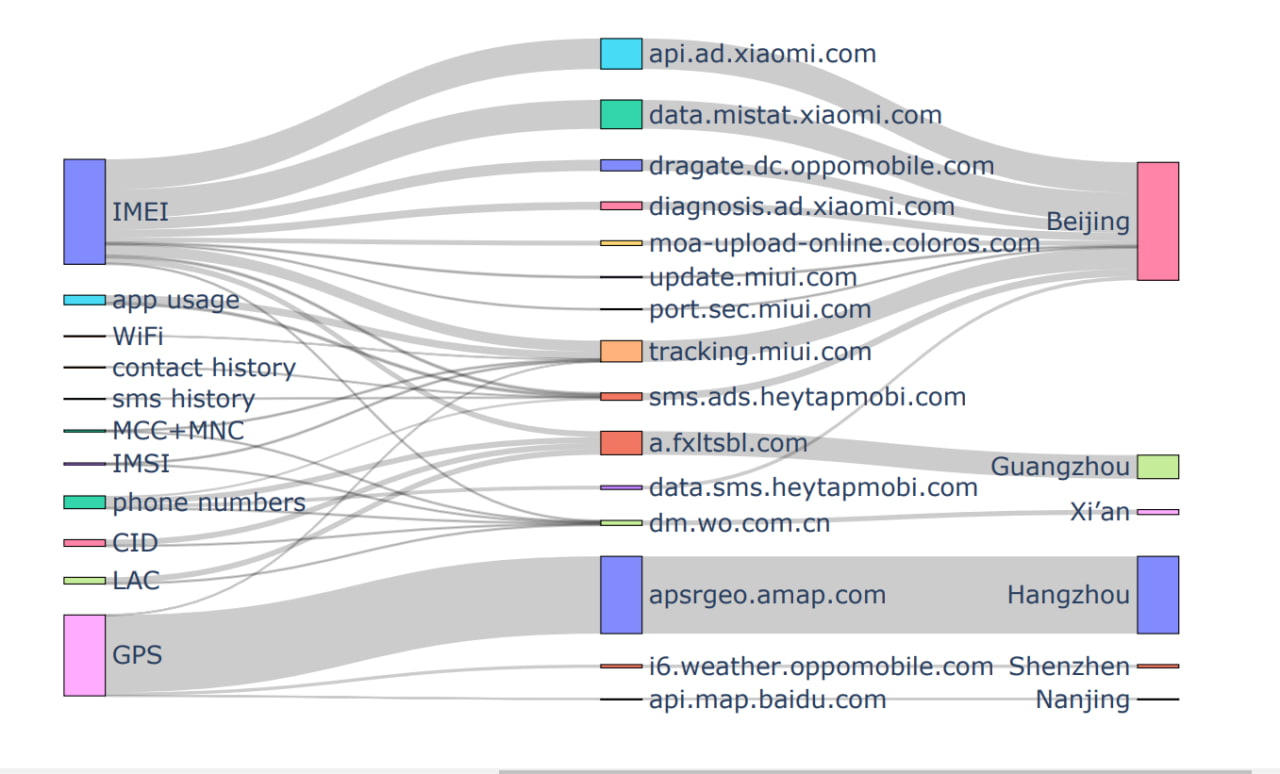A study published by computer scientists from several universities shows that Chinese smartphone manufacturers Xiaomi, OnePlus, Oppo and Realme collect a large amount of sensitive user data through the operating system and applications preinstalled on the device.
The researchers experimented with a number of devices purchased from manufacturers in China and performed network analysis on them to understand how serious the data breach was. The results paint an alarming picture of the state of user privacy in the world’s largest Android marketplace.
The collected personal information (Personally Identifiable Information or PII) includes quite important data: basic information about the user, such as phone numbers and permanent device identifiers (IMEI and MAC addresses, advertising identifiers, etc.) and geolocation data (which obviously reveal the physical location). In addition, social data is also collected: contacts, phone numbers, calls, text and voice messages data. All this indicates that the recipient of such information will have a fairly clear idea of who is using a particular device, where he is and with whom he is talking. In China, however, phone numbers are linked to an individual “citizen ID”, meaning that they are inextricably linked to the real and legal identity of the user.
According to the researchers, this data is collected without any notice or consent from the user, and there is no way to opt out. Data collection also does not stop when the device and user leave China, even though different countries have different privacy laws that should affect how a user’s personal information is collected. The researchers found that data was sent to Chinese mobile operators even when they were not providing services (for example, when no SIM card was inserted into the device).

All this raises concerns about widespread surveillance of smartphone users in China. The study’s findings appear to run counter to the August 2021 privacy law, which is supposed to protect Chinese consumers from collecting data without their consent. Gizmodo has reached out to the phone makers involved in the study for comment.
Source: Trash Box
I’m Meagan Diaz, a news writer and author at World Stock Market. My main focus is on technology and stock market trends, and I’m passionate about helping readers stay informed on the ever-changing landscape. I bring extensive knowledge of the industry to my work as well as a knack for storytelling that makes my articles both accessible and engaging.







